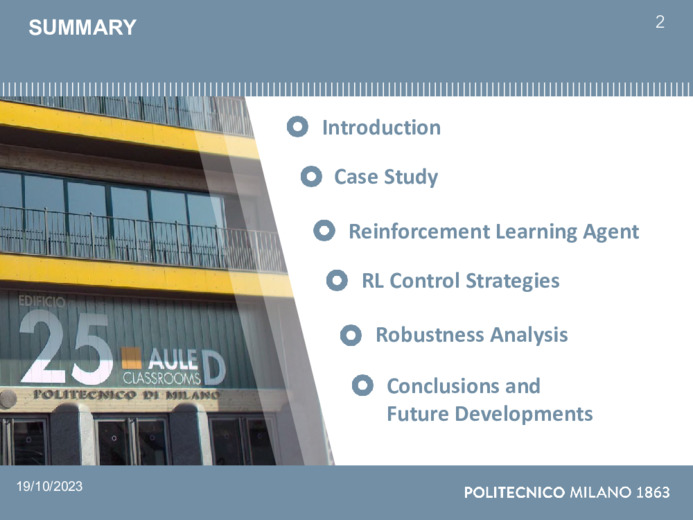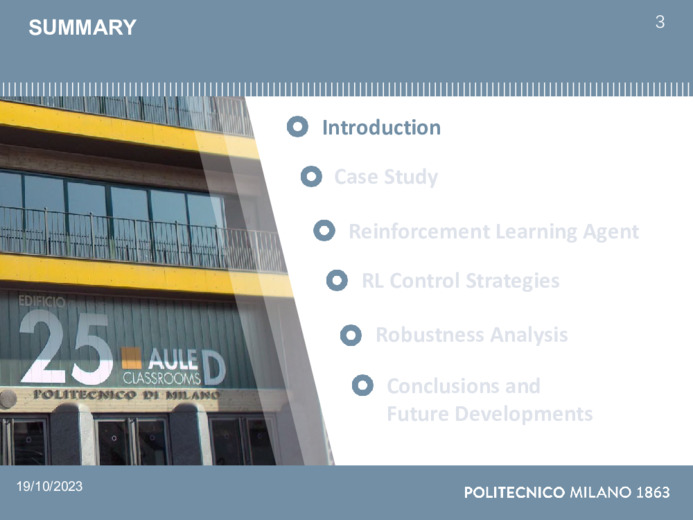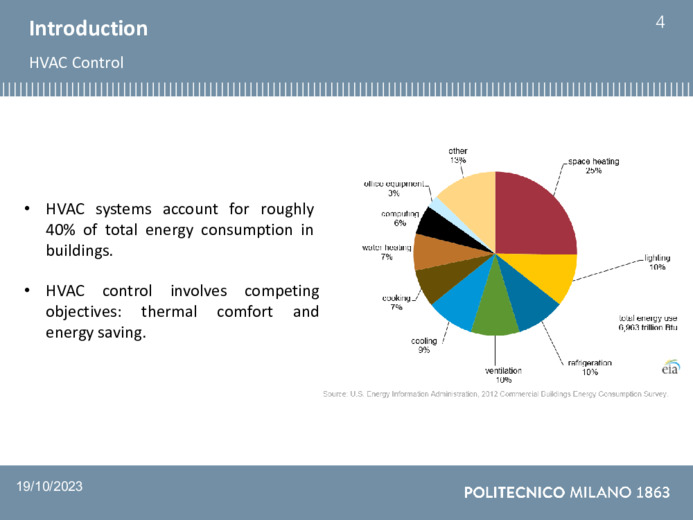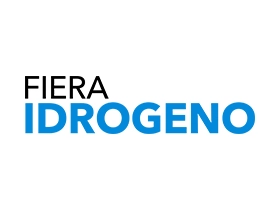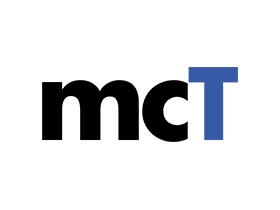Temperatura negli edifici: il Reinforcement Learning
Potenzialitą e limiti del Reinforcement Learning per il controllo della temperatura negli edifici
Luca Ferrarini, Alberto Valentini - Politecnico di Milano - DEIB
(in lingua inglese)
- Introduction: HVAC Control; Objective and Workflow: Design and implementation of a DRL agent for temperature control in a medium-sized building
- Case Study
- Reinforcement Learning Agent
- RL Control Strategies
- Robustness Analysis
- Conclusions and Future Developments
- The model-based approach reduces the RL training time (months/years - days/hours)
- Cascade control exhibits superior performance with respect to centralized control
- RL-based controller with cascade configuration provides performance comparable to MPC
- RL agent robustness analysis regarding uncertainties in the model parameters (image)
- Reducing the mismatch between reference and simplified model introducing a variable fan coil thermal transmission coefficient (?) and COP
- Hyperparameter optimization algorithm (Bayesian optimization)
- Combining Model Predictive Control and Reinforcement Learning
Attached, you can download the full pdf of the presentation.
- Cascade control exhibits superior performance with respect to centralized control
- RL-based controller with cascade configuration provides performance comparable to MPC
- RL agent robustness analysis regarding uncertainties in the model parameters (image)
- Reducing the mismatch between reference and simplified model introducing a variable fan coil thermal transmission coefficient (?) and COP
- Hyperparameter optimization algorithm (Bayesian optimization)
- Combining Model Predictive Control and Reinforcement Learning
Attached, you can download the full pdf of the presentation.
Fonte: SAVE ottobre 2023 Smart Building: un paradigma in continua evoluzione
Settori: Climatizzazione, HVAC, Riscaldamento, Sistema di monitoraggio energetico, Strumentazione industriale, Ventilazione
Mercati: Edilizia, Strumentazione industriale
- Massimiliano Vessi
- Mefa Italia
- Armstrong Fluid Technology
 English
English


